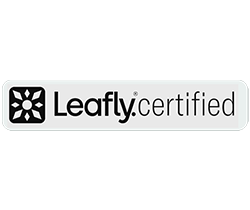While cannabis is still federally illegal, many jurisdictions have legalized cannabis medicinally and/or recreationally at the state level. Through this legalization, programs have been developed to ensure that the product is safe for human consumption. This is done through strict regulations that require a certified cannabis testing laboratory to conduct cannabis compliance testing. While the specifics of these regulations tend to vary from state to state, the required testing fields are becoming more similar across the nation.
Modern Canna is a certified marijuana testing laboratory (CMTL) headquartered in Florida, who is responsible for following the guidelines and regulations set forth by Florida’s Office of Medical Marijuana Use. These regulations provide Modern Canna with specific tests that must be conducted on all medical cannabis products prior to sale to ensure that product safety standards are being met.
Why Should Cannabis Products be Subjected to Compliance Testing?
In Florida, cannabis is used for medicinal purposes, meaning that those who consume the products are doing so for specific medical reasons. In knowing this, it is imperative that the state require specific testing to ensure that the product does not contain any dangerous contaminants and that the product is of high quality. Cannabis is known to be a bio-accumulator and phytoremediator, which means that it is highly susceptible to accumulating unsafe amounts of dangerous contaminants, even when the exposure to those compounds is minimal. As such, conducting compliance testing on cannabis to ensure that the product does not pose a health risk to consumers is an important part of Florida’s medical marijuana program.
What Tests are Included in Florida’s Cannabis Compliance Testing?
As mentioned previously, regulations surrounding compliance testing will vary from state to state. Some states may have more stringent testing requirements, while others may require less testing. As such, it is important for growers and producers to review the specific regulations set forth in their state to better understand what quality standards their products must meet.
Below, our team has provided a basic overview of the current regulations that have been set forth by the Florida Office of Medical Marijuana Use (OMMU) for cannabis compliance testing.
Foreign Matter Testing
Florida regulations require that all cannabis products be inspected for foreign matter by a third party laboratory during compliance testing. Foreign matter constitutes anything that is not part of the sample, which can include but is not limited to mold, mildew, insects, hair, manufacturing waste, packaging contaminants, and feces. If the laboratory finds any foreign matter present, they must refer to the regulations and perform specific calculations to determine if the product passes this field of testing.
Heavy Metal Testing

Another cannabis compliance testing field that is required by Florida regulations is heavy metal testing. This testing involves looking at four different heavy metals that are known to be dangerous to humans if inhaled or consumed. These metals are normally referred to as the big four and include Arsenic (As), Cadmium (Cd), Lead (Pb), and Mercury (Hg). Depending on the product type, the allowable amount of these contaminants may vary.
Microbial Testing
Florida testing regulations require that all cannabis products undergo microbial testing as part of the compliance testing panel. This testing includes various microbes that have been known to cause illness in humans. Cannabis products can be exposed to microbes in all parts of the growing and manufacturing process, therefore, it is important to ensure that the products being sold do not contain any harmful microbes at limits that could make a consumer sick. The microbes that are included in Florida’s compliance testing panel have been listed below:
| Aspergillus flavus | Salmonella |
| Aspergillus fumigatus | Shiga Toxin E. coli |
| Aspergillus niger | Total Yeast and Mold |
| Aspergillus terreus | S. aureus |
| Bile Tolerant Gram-Negative Bacteria |
Moisture Testing
Moisture testing is another cannabis compliance test that is required for all flower products that are produced in Florida. This testing is important because it ensures the quality of the product and helps make sure that mold growth will not be a concern once the material makes it to market. Florida regulations have a threshold limit of 15% for cannabis flower, stating that anything over this moisture constitutes a failure.
Mycotoxin Testing
 Florida cannabis regulations also require medical cannabis products to undergo mycotoxin testing. This testing involves ensuring that cannabis flower, derivative, and edible products do not contain Aflatoxin B1, Aflatoxin B2, Aflatoxin G1, Aflatoxin G2, and Ochratoxin above 20ppb. Mycotoxins are secondary metabolites of microbes that can persist in a product even after the microbes have been removed. The toxins are extremely dangerous to humans and have been known to cause severe illness at low concentrations.
Florida cannabis regulations also require medical cannabis products to undergo mycotoxin testing. This testing involves ensuring that cannabis flower, derivative, and edible products do not contain Aflatoxin B1, Aflatoxin B2, Aflatoxin G1, Aflatoxin G2, and Ochratoxin above 20ppb. Mycotoxins are secondary metabolites of microbes that can persist in a product even after the microbes have been removed. The toxins are extremely dangerous to humans and have been known to cause severe illness at low concentrations.
Agricultural Agent Testing
Agricultural agent testing, more commonly referred to as pesticide testing, is another cannabis compliance testing field that is included in Florida regulations. This testing requires certified laboratories to test all cannabis product types for 67 different agricultural agents which include several fungicides, pesticides, herbicides, and plant growth regulators. Due to the bio-accumulative and phytoremediation properties of cannabis, it is imperative that medical cannabis products be tested for this field of contaminants. A list of all agricultural agents included in Florida’s cannabis compliance testing panel have been included below:
| Abamectin | Fludioxonil |
| Acephate | Hexythiazox |
| Acequinocyl | Imazalil |
| Acetamiprid | Imidacloprid |
| Aldicarb | Kresoxim-methyl |
| Azoxystrobin | Malathion |
| Bifenazate | Metalaxyl |
| Bifenthrin | Methiocarb |
| Boscalid | Methomyl |
| Captan | Methyl parathion |
| Carbaryl | Mevinphos |
| Carbofuran | Myclobutanil |
| Chlorantraniliprole | Naled |
| Chlordane | Oxamyl |
| Chlorfenapyr | Paclobutrazol |
| Chlormequat chloride | Pentachloronitrobenzene |
| Chlorpyrifos | Permethrin |
| Clofentezine | Phosmet |
| Coumaphos | Piperonyl butoxide |
| Cyfluthrin | Prallethrin |
| Cypermethrin | Propiconazole |
| Daminozide | Propoxur |
| Diazinon | Pyrethrins |
| Dichlorvos | Pyridaben |
| Dimethoate | Spinetoram |
| Dimethomorph | Spinosad A and D |
| Ethoprophos | Spiromesifen |
| Etofenprox | Spirotetramat |
| Etoxazole | Spiroxamine |
| Fenhexamid | Tebuconazole |
| Fenoxycarb | Thiacloprid |
| Fenpyroximate | Thiamethoxam |
| Fipronil | Trifloxystrobin |
| Flonicamid |
Residual Solvent Testing
Another testing field that is required as part of the cannabis compliance testing panel in Florida is residual solvent testing. This type of testing is only required for derivative and edible products, as these materials are ones that are potentially exposed to dangerous solvents during the production process. Solvents are categorized by specific classes and these classifications are determined based on their toxicity potential. A complete list of the solvents that Florida certified marijuana testing laboratories (CMTLs) must test for has been included below:
| Acetone | Heptane |
| Acetonitrile | Hexane |
| Benzene | Isopropyl alcohol |
| Butane | Methanol |
| Chloroform | Methylene chloride |
| 1,2-Dichloroethane | Pentane |
| 1,1-Dichloroethene | Propane |
| Ethanol | Trichloroethylene |
| Ethyl acetate | Toluene |
| Ethyl ether | Total Xylenes (m, p, and o) |
| Ethylene oxide |
Water Activity Testing
 The final cannabis compliance testing field required by Florida regulations is water activity testing. This testing is important for cannabis products as it helps determine the product’s ability to have microbial growth occur after the product has been packaged. If too much free water is present in a sample, there is a chance that the product may grow mold prior to being purchased by the consumer. Florida regulations state that flower products must have a water activity of less than 0.65 Aw and that derivative and edible products must be below 0.85 Aw.
The final cannabis compliance testing field required by Florida regulations is water activity testing. This testing is important for cannabis products as it helps determine the product’s ability to have microbial growth occur after the product has been packaged. If too much free water is present in a sample, there is a chance that the product may grow mold prior to being purchased by the consumer. Florida regulations state that flower products must have a water activity of less than 0.65 Aw and that derivative and edible products must be below 0.85 Aw.
Choosing a Cannabis Lab for Compliance Testing
In the cannabis industry, the accuracy of the data provided by the laboratory is an imperative part of ensuring safe and quality products make it into the hands of consumers. At Modern Canna, we understand this and understand how bad data can negatively impact a producer’s reputation. Choosing Modern Canna for your Florida cannabis compliance testing needs will provide you with the protection and reassurances necessary to know that your product is free of contaminants and that you will not face scrutiny or product recalls because of the data put forth by the laboratory.


